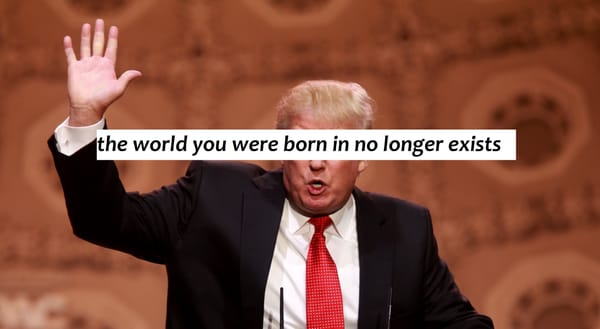America's Unusual Legal Politics

For the past month, the public debate has been roiled with those who believe it too dangerous to prosecute a former president under current political conditions, and those who believe it too dangerous to let presidents break laws with impunity without facing consequences. There’s a striking contrast with the debates around the 2020 and 2021 impeachment proceedings; whereas that time many of those supporting moving forward wanted to emphasize the political rather than the legal nature of impeachment, today there is little doubt that, whatever the political or moral arguments, these are legal cases. It is precisely because of the clear presence of political motives that some are wary of pressing ahead.
Americans are acutely muddled in our understanding of where politics ends and law begins. Where parliamentary systems routinely remove their top executives through a transparently political process, in America we have a removal process that requires bringing charges of “Treason, Bribery, or other high Crimes and Misdemeanors,” and then holding a trial within our legislature’s upper house. Only in America will you find an elected sheriff arresting someone for a crime that will be prosecuted through an elected DA’s office and heard by an elected judge, with the defense quite possibly represented through an elected public defender’s office.
The people who get to decide what the Constitution or a statute or a regulation mean in this case or for this situation are those in positions of institutional authority. For all the reasons described above, the contest for these positions in America is unusually integrated into our party politics. But everywhere that institutional authority of any kinds exists, there are contests of some sort to claim it. In reality, politics does not end where law begins; for politics is simply the striving “for a share of power or to influence the distribution of power”[1] and in order for there to be judges, lawyers, and civil servants at all, there must be people who strive to occupy those roles.
If we can discard the stale dichotomy between law and politics, we can usefully distinguish between the politics of writing and enacting rules—the politics of legislation—and the politics of determining what rules mean in practice—the politics of implementation. America is peculiar in the way we structure both of these types of contests, with two separately constituted chambers and a separately elected president all required for passing bills, on the one hand, and executive and judicial branches much more tied to electoral outcomes, on the other.
Because of the far deeper penetration of party politics into our politics of implementation, electoral politics is perpetually putting the entire legal system into question. This carries very high risks, very much on display in the various legal troubles that former president Donald Trump is embroiled in. On the one hand, a regime that allows its institutional leaders to break laws openly and without consequence is already in a state of lawlessness. On the other hand, a regime that enables whatever political party is in power to prosecute the leadership of their rival is at great risk of becoming lawless, and certainly of becoming undemocratic. Related to this is the risk that if partisans perceive a prosecution to be merely a maneuver for the other side to secure their own power, it could lead to civil unrest.
The legal establishment’s reflex when faced with these risks is to retreat into the comfortable world of some formalism or other. Even in the best of times they display a “tendency to think of law as ‘there’ as a discrete entity,”[2] something to be discovered, understood, and elaborated through abstract analysis. To the natural law jurist and to some extent the common law one (there being a long and unfortunate history of conflating the two), the law that is ‘there’ is one to be discovered through judicial reasoning. To the positivists or originalists, the law is simply derived from the combined semantic meaning of officially enacted texts.
The reality is that there is no law that is discretely out ‘there’, except what in the common law tradition gets called “positive law”; the statutory, constitutional, and regulatory provisions actually written down in official legal documents. But for some action to be “against the law” does not, in practice, mean that someone, somewhere views it as being at odds with something written in some section of positive law. What it means is that someone will bring charges against you for having done it—charges justified in the language of relevant positive law—and some judge will find you guilty of it and set some punishment. In other words, it is against the law because the legal institutions treat it as such, invoking language from positive law as the justification for the treatment.
The jurist’s formalism cannot save them from the inescapably social role they are called upon to perform, nor the peculiar difficulty that America places upon those performing it. Neither positivism nor originalism, nor natural law, can secure the lawfulness of a regime nor the orderliness of a society.
Lawfulness is a matter of reliably following established procedures and treating similar situations similarly; of justifying these similar actions with the same language drawn from positive law. When positive law is changed—for example, when a new bill is passed by the legislature—the way that a lawful system changes its behavior in response to the textual change is consistent across its many actors. Orderliness, meanwhile, is a matter of the members of society at large managing to coordinate their activities peacefully.
Both the politics of legislation and of implementation can make a system more or less lawful, more or less orderly. Elected officials, political appointees, and civil servants must all do their parts. A legislature that routinely removes executives from office has teeth against implementers who get too creative in their interpretations of positive law. A president who knows that the legislature cannot remove him but chooses to limit how bold he will be in his unilateralism also makes for a more lawful system. And the possibility of free and fair elections rests to a significant degree on the typical politicians not behaving as Trump has in defeat, refusing to acknowledge its reality and using every last drop of influence to reverse the outcome.
Lawfulness is one thing, but a regime that de jure deviates too far from what will be tolerated by the de facto interests and powers in a society—power which in this the modern world is spread quite broadly—is apt to fall into disorder. Legislative supremacy is by far the best approach to mediating this, but our difficult to amend Constitution has allowed the interpreters of it—and the Supreme Court above all—to gain disproportionate institutional authority. This has accordingly increased the stakes of the contests for those offices, which has not been wonderful for promoting either lawfulness or order. The resulting range of interpretations of the same clauses of the Constitution over the history of the Court is laughable to behold.
Our system makes it very hard, but we can strive to implement alternate interpretations of legal texts with integrity, just as we can compete in free and fair elections with integrity. There are clear contests in which competing interpretations may eventually be able to supersede established ones. If a party succeeds in contests for the legislature and the presidency, passes new bills and appoints new judges, the interpretation of standing constitutional text can ultimately be changed.
In a healthy liberal democracy, there is no end to elections, no final victory. In the same way, there is no end to either the politics of legislation or of interpretation. This is an important point for liberal law professors to remember, as the Supreme Court precedents set from the 50s to the 70s encouraged a widespread complacency in a number of crucial areas. Conservatives, meanwhile, did not treat these precedents as final, and the results are now plain to see. No one has the final say in politics. There is always the next election, the next bill, the next media event demanding a response from elected officials. But there is also always the next appointment battle, the next court case, the next administrative action. The struggle to maintain the lawfulness of the system, but also to determine the substance of that law, is perpetual.
[1] Weber, Max, David S. Owen, Tracy B. Strong, Rodney Livingstone, Max Weber, and Max Weber. The Vocation Lectures. Indianapolis: Hackett Pub, 2004. 33.
[2] Shklar, Judith N. Legalism: An Essay on Law, Morals, and Politics. First Edition. Harvard University Press, 1964. 9.
Featured Image is Governor Earl Warren at the Anaheim Halloween Parade, photo courtesy County of Orange




